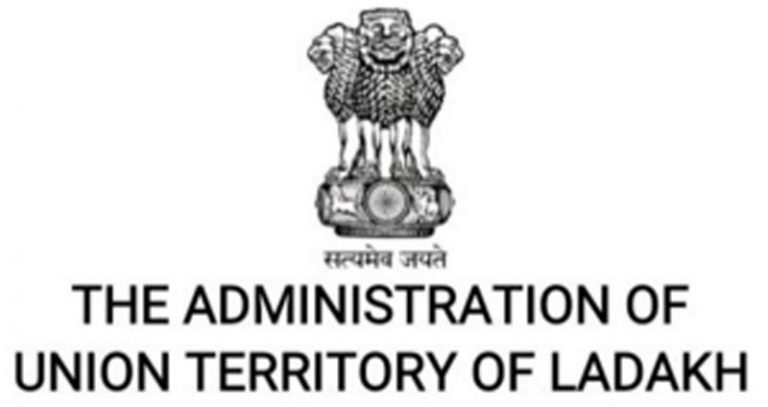IIA setting up campus in Merak to study Sun
*Drone-based Magnetic Survey, geothermal studies going on
Mohinder Verma
JAMMU, Dec 24: Several significant researches are being conducted by the Ministry of Science and Technology supported institutions and organizations in the Union Territory of Ladakh and positive results will come to the fore in near future. Moreover, Indian Institute of Astrophysics (IIA) is setting up a campus in Merak area to study the Sun and National Geophysical Research Institute is engaged in carrying out Drone based Magnetic Survey and geothermal exploration studies in different regions of Ladakh.
As per the official document, the copy of which is available with EXCELSIOR, several steps have been taken by the Scientific Ministries of the Government of India to increase research and development in Ladakh especially after the accord of Union Territory status to the cold desert region.
The Ministry of Science and Technology supported different institutions for research and development in Ladakh amounting Rs 1206.68 lakh and Rs 2572.67 lakh respectively during pre and post creation of UT. In addition, Ministry of Earth Sciences has also installed a Radar costing Rs 500 lakh for the establishment of Meteorological Centre at Leh and supported a project costing Rs 69.65 lakh post creation of UT.
Meteorological Observatory (MO), Leh was upgraded into full-fledged Meteorological Centre (MC) by Ministry of Earth Sciences after Ladakh became a Union Territory. The Meteorological Centre includes Class-I Surface Observatory, Radar and other Observing Systems, Forecasting and Communication facilities, the document said.
“The Indian Institute of Astrophysics (IIA), Bangalore, an autonomous body under Department of Science and Technology (DST), which operates the Indian Astronomical Observatory in Hanle since 2000, is setting up a campus in Merak to study the Sun”, the document further said, adding in September 2022, a research project amounting Rs 69.65 lakh on “Studies of Aerosol Optical Properties and Associated Radiative Forcing at Leh in climate sensitive Hindu Kush Himalayan Region” was sanctioned to Indian Institute of Astrophysics.
To strengthen the quality of research in the University of Ladakh and Trans-Himalayan Ladakh region, the DST has already supported a project for procuring high-end research facilities with a cost of Rs 700 lakh under Promotion of University Research and Scientific Excellence (PURSE) program through a special drive.
Moreover, DST has also established a Technology Enabling Centre in the Ladakh University, Leh for creating an enabling eco-system, process and support system for technology development, deployment and diffusion.
“In pre-UT creation, DST supported four projects amounting Rs 169.8 lakh under Technology Interventions for Addressing Societal Needs (TIASN) and Arid, Semi-Arid and Cold Desert Regions (ASACODER) and Technology Intervention for Mountain Ecosystems (TIME)- Livelihood Enhancement through Action Research & Networking (LEARN). However, post UT creation, Department of Science and Technology supported six projects amounting Rs. 653.8 lakh under Tribal Sub Plan”, the document said.
These six projects are aimed at doubling income of tribal farming community through protected cultivation of high-value horticultural crops in Zanskar, ensuring technological interventions to address basic needs of tribal farming people of Ladakh, sustaining livelihoods by improving access to solar energy and water in Rong valley and enhancing tribal livelihood through organic vegetable seed production in cold arid region.
Disclosing that Wadia Institute of Himalayan Geology (WIHG), an autonomous body under DST has extensively conducted geological and geophysical studies in the Ladakh region since its inception, the document said that currently WIHG is implementing six projects and has even established seismic observatories in the Ladakh region.
Among the projects being implemented by WIHG are tectono-thermal evolution of the Karakorum migmatites along Shyok and Tangtse Valleys and implications on the tectonics of Karakorum region; study of structural and crystallographic features of the Tso Morari dome of Trans-Himalaya etc.
“Council of Scientific and Industrial Research (CSIR) is deploying its knowledge base and technologies in Ladakh for the cultivation, processing and marketing of commercially important aromatic and floriculture crops such as Lilium, Gladiolus, etc under CSIR-Floriculture Mission and CSIR-Aroma Mission along with active participation of departments of Ladakh”, the document said while disclosing that National Geophysical Research Institute (CSIR-NGRI), Hyderabad is engaged in carrying out drone based Magnetic Survey in Ladakh region and geothermal exploration studies in Puga and Chumatang regions of Ladakh.


